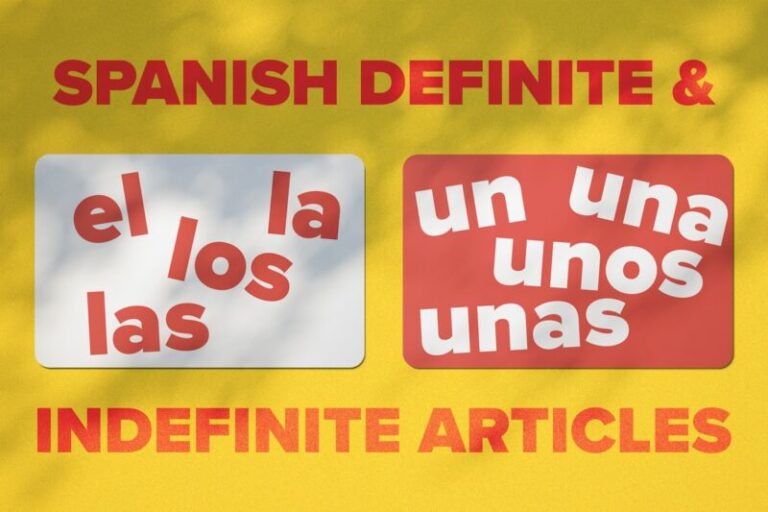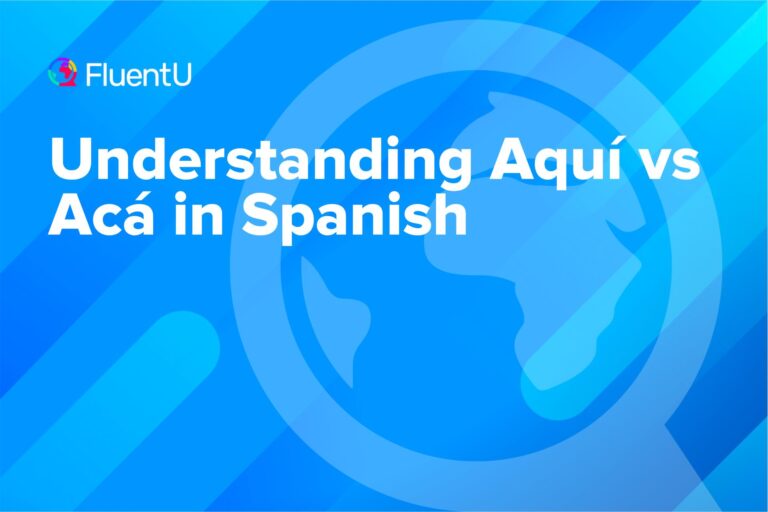Contents
- 1. Al que madruga Dios lo ayuda
- 2. Más vale tarde que nunca
- 3. Nunca es tarde si la dicha es buena
- 4. Da la mano y te tomarán el brazo
- 5. Ojos que no ven, corazón que no siente
- 6. No puede haber pollo en corral y cazuela
- 7. No hay mal que dure cien años
- 8. En la variedad está el gusto
- 9. Si te caes siete veces, levántate ocho
- 10. Al mal tiempo buena cara
- 11. Adonde fueres haz lo que vieres
- 12. El mundo es un pañuelo
- 13. A donde te quieran mucho no vayas a menudo
- 14. El tiempo lo cura todo
- 15. El que mucho abarca poco aprieta
- 16. ¡Zapatero, a sus zapatos!
- 17. A buen hambre no hay pan duro
- 18. Dime con quién andas y te diré quién eres
- 19. Ladrón que roba a ladrón tiene cien años de perdón
- 20. Cada uno sabe dónde aprieta el zapato
- 21. El dinero llama al dinero
- 22. Que cada palo aguante su vela
- 23. A palabras necias oídos sordos
- 24. Barriga llena, corazón contento
- 25. Año nuevo, vida nueva
- How Spanish Sayings Help You Learn
- And One More Thing…
25 Inspiring Spanish Sayings About Life

Learning a language is more than just memorizing grammar and vocabulary—it’s about understanding the language as a way of life. And to better understand cultural perspective, you can learn different types of sayings to gain a whole new view on the language.
With Spanish sayings about life, you’ll add more variety and depth to your skills and be able to sound more like a native speaker. The following 25 common Spanish sayings are relevant to day-to-day life and will be accessible to beginners in the language.
Download: This blog post is available as a convenient and portable PDF that you can take anywhere. Click here to get a copy. (Download)
1. Al que madruga Dios lo ayuda
Meaning: The early bird catches the worm
Literal translation: He who wakes early, God helps
This common Spanish saying can be used just as one would use the English equivalent, but in Spanish it is Dios (God) who helps.
Colloquially, this Spanish saying is often used in a cute way to encourage someone to go to sleep early.
2. Más vale tarde que nunca
Meaning: Better late than never
Literal meaning: Late is worth more than never
This phrase is used in the same way as “better late than never” in English, such as when you forget to submit an essay on time, or you wish someone a happy birthday a few days late.
3. Nunca es tarde si la dicha es buena
Meaning: Better late than never
Literal translation: It’s never too late if happiness is good
This saying is specifically used for situations where you or someone else is running late.
You could say this to a friendly bus or taxi driver who arrives much later than the scheduled time. It’s a good-humored way to say, “hey, no worries.”
4. Da la mano y te tomarán el brazo
Meaning: Give a man an inch and he’ll take a mile
Literal translation: Hold out your hand and they’ll take your arm
This saying is often used as a way to describe someone who takes advantage of situations, such as a person, a company or politicians.
Use it in personal situations, venting about someone who took advantage of your generosity or when warning or commiserating with a friend.
5. Ojos que no ven, corazón que no siente
Meaning: Ignorance is bliss
Literal translation: What the eyes don’t see, the heart doesn’t feel
This expression has two variations and both are acceptable.
This is a good one to use to console a friend—especially if you’re telling her to unfollow her ex-boyfriend on Instagram so she can’t stare at his pictures and cry over what’s in the past.
6. No puede haber pollo en corral y cazuela
Meaning: You can’t have your cake and eat it too
Literal translation: There can’t be chickens both in the barnyard and in the pot
This saying remarks on when an individual’s expectations go beyond the scope of reality.
They want to have something two ways, but can only have it one. For example, you can’t work your 9-5 office job and also take extended, multi-month vacations.
7. No hay mal que dure cien años
Meaning: Time heals all wounds
Literal translation: There is no evil that lasts 100 years
Use this saying to relate to and console an individual undergoing emotional difficulty.
I first learned this saying in a coffee shop in Costa Rica while describing a painful situation in my broken Spanish to a tica (young Costa Rican girl).
8. En la variedad está el gusto
Meaning: Variety is the spice of life
Literal translation: In variety lies the taste
This is a fun Spanish saying to throw out at a party or when you feel like trying something new, whether it be a plato (dish), restaurante (restaurant), vino (wine)—anything, really!
9. Si te caes siete veces, levántate ocho
Meaning: If you fall, get up and try again
Literal translation: If you fall seven times, get up eight
This saying emphasizes that even though you might be beat down again and again, you can still get up and make it.
No matter how rough a situation might be, it’s always best to be resilient and come back even stronger than before.
10. Al mal tiempo buena cara
Meaning: When life gives you lemons, make lemonade. Look on the bright side
Literal meaning: At a bad time, a happy face
In Spanish, this phrase is used in similar situations to the phrase “look on the bright side” in English.
When you are facing a difficult moment, keep your chin up, remain positive and try to make the best of the situation.
As this video from our YouTube channel indicates, Mexican culture values happiness even when things aren’t going well.
11. Adonde fueres haz lo que vieres
Meaning: When in Rome, do as the Romans do
Literal translation: Wherever you go, do what you see
Everywhere has different customs and social norms and the best thing you can do when traveling is observe and follow what you see.
If you follow the locals and value their ways of life and language, you will open yourself up to a whole new experience!
This saying also applies to language learning—one of the best ways to learn a language fluently is to pick up local slang and varieties by listening to native speakers.
However, immersion isn’t limited to being in a Spanish-speaking country. You can also have the same experience with native speakers through language exchanges or even Spanish media. For example, you could watch Spanish TV shows and try to pick up Castilian Spanish phrases used in everyday life.
12. El mundo es un pañuelo
Meaning: It’s a small world
Literal meaning: The world is a handkerchief
In Spanish, this phrase is often used if you bump into someone you know in an unexpected place.
For example, imagine you are climbing up to visit Machu Picchu and you suddenly spot an old classmate from high school, or perhaps you’ve just seen your boss at the airport.
13. A donde te quieran mucho no vayas a menudo
Meaning: A constant guest is never welcome
Literal meaning: Where people love you very much, don’t go often
This saying advises against overstaying your welcome in a place where you’re greatly appreciated.
14. El tiempo lo cura todo
Meaning: Time heals all wounds
Literal meaning: Time heals everything
It’s a comforting reminder during difficult times that things will eventually get better with time.
15. El que mucho abarca poco aprieta
Meaning: Don’t bite off more than you can chew
Literal meaning: He who covers a lot can’t keep a tight grip
This saying warns against spreading oneself too thin by taking on too many tasks or responsibilities.
16. ¡Zapatero, a sus zapatos!
Meaning: Mind your own business
Literal meaning: Shoemaker, to your shoes!
This saying reminds people to stick to their own needs. It’s often used to gently remind someone not to meddle in affairs that do not concern them.
17. A buen hambre no hay pan duro
Meaning: Beggars can’t be choosers
Literal meaning: To great hunger, there’s no stale bread
That’s how Spanish people would emphasize the importance of being grateful for what you have, especially in times of need.
18. Dime con quién andas y te diré quién eres
Meaning: A man is known by the company he keeps
Literal meaning: Tell me who you’re with, and I’ll tell you who you are
This Spanish saying means that one’s companions or friends can influence their character and behavior.
It suggests that the people you surround yourself with reflect your own values and personality.
19. Ladrón que roba a ladrón tiene cien años de perdón
Meaning: It’s no crime to steal from a thief.
Literal meaning: A thief that steals from a thief, has 100 years of forgiveness
This saying is used to justify committing a wrongdoing in response to another wrongdoing.
20. Cada uno sabe dónde aprieta el zapato
Meaning: Everyone knows their own struggles
Literal meaning: Everyone knows where the shoe pinches
In Spain, if you want to acknowledge that everyone experiences difficulties or challenges, then you can say “Cada uno sabe donde aprieta el zapato”.
It’s often used to remind individuals to be considerate and supportive of others, as everyone has their own burdens to bear.
21. El dinero llama al dinero
Meaning: Money attracts more money
Literal meaning: Money calls money
Spanish people use this phrase when talking about the idea that wealth tends to accumulate more wealth through investments, opportunities, and favorable circumstances.
It means that those who already have a lot of money are more likely to gain additional wealth compared to those who have less.
22. Que cada palo aguante su vela
Meaning: Mind your own business
Literal meaning: May every mast hold its own sail
Similar to “Zapatero, a sus zapatos,” this saying advises individuals to focus on their own business.
It’s often used to remind someone not to interfere in matters that do not concern them or to discourage gossiping or nosiness.
23. A palabras necias oídos sordos

Meaning: Don’t pay attention to foolish words
Literal meaning: To foolish words, deaf ears
This saying advises ignoring or disregarding foolish or nonsensical remarks or opinions.
It’s often used to remind individuals not to let negativity or criticism affect them and to focus on what truly matters.
24. Barriga llena, corazón contento
Meaning: A full stomach makes a happy heart
Literal meaning: A full belly, a happy heart
In Spain, people use this phrase to remind the importance of food in our life and health. This saying expresses gratitude for a satisfying meal.
25. Año nuevo, vida nueva
Meaning: New year, new life
Literal meaning: New year, new life
This saying signifies the opportunity for a fresh start or a chance to make positive changes in one’s life.
You can use it around the beginning of a new year to inspire optimism and motivation for personal growth and improvement.
How Spanish Sayings Help You Learn
Spanish sayings aren’t just fun, but they’ll help improve your language skills. Here’s how:
- You’ll learn advanced vocabulary and verbs. Sayings aren’t often said every day, and they often contain some more complex grammar and verbs that you wouldn’t see in casual conversation. Since sayings are fixed, it can help you grasp their grammar.
- You’ll get some conversation fillers. Sometimes you just don’t know what to say, especially in early conversation. If you know some Spanish sayings, you’ll have more to contribute to a conversation and things will flow a little easier.
- You’ll sound more fluent. Since you won’t be struggling for something to say, these Spanish sayings can help you respond appropriately and demonstrate your understanding of the language. Plus, the fact you even know them demonstrates fluency!
- You’ll get to compare Spanish and English language culture. Looking at the difference in sayings and their translations will show what values each culture emphasizes. For example, you’ll probably notice that Spanish sayings tend to emphasize food and religion compared to their English counterparts.
Try using these sayings with your profesora (teacher) or Spanish-speaking friends.
¡Hasta la próxima, amigos! (Until next time, friends!)
Download: This blog post is available as a convenient and portable PDF that you can take anywhere. Click here to get a copy. (Download)
And One More Thing…
If you've made it this far that means you probably enjoy learning Spanish with engaging material and will then love FluentU.
Other sites use scripted content. FluentU uses a natural approach that helps you ease into the Spanish language and culture over time. You’ll learn Spanish as it’s actually spoken by real people.
FluentU has a wide variety of videos, as you can see here:

FluentU brings native videos within reach with interactive transcripts. You can tap on any word to look it up instantly. Every definition has examples that have been written to help you understand how the word is used. If you see an interesting word you don’t know, you can add it to a vocab list.

Review a complete interactive transcript under the Dialogue tab, and find words and phrases listed under Vocab.

Learn all the vocabulary in any video with FluentU’s robust learning engine. Swipe left or right to see more examples of the word you’re on.

The best part is that FluentU keeps track of the vocabulary that you’re learning, and gives you extra practice with difficult words. It'll even remind you when it’s time to review what you’ve learned. Every learner has a truly personalized experience, even if they’re learning with the same video.
Start using the FluentU website on your computer or tablet or, better yet, download the FluentU app from the iTunes or Google Play store. Click here to take advantage of our current sale! (Expires at the end of this month.)


















